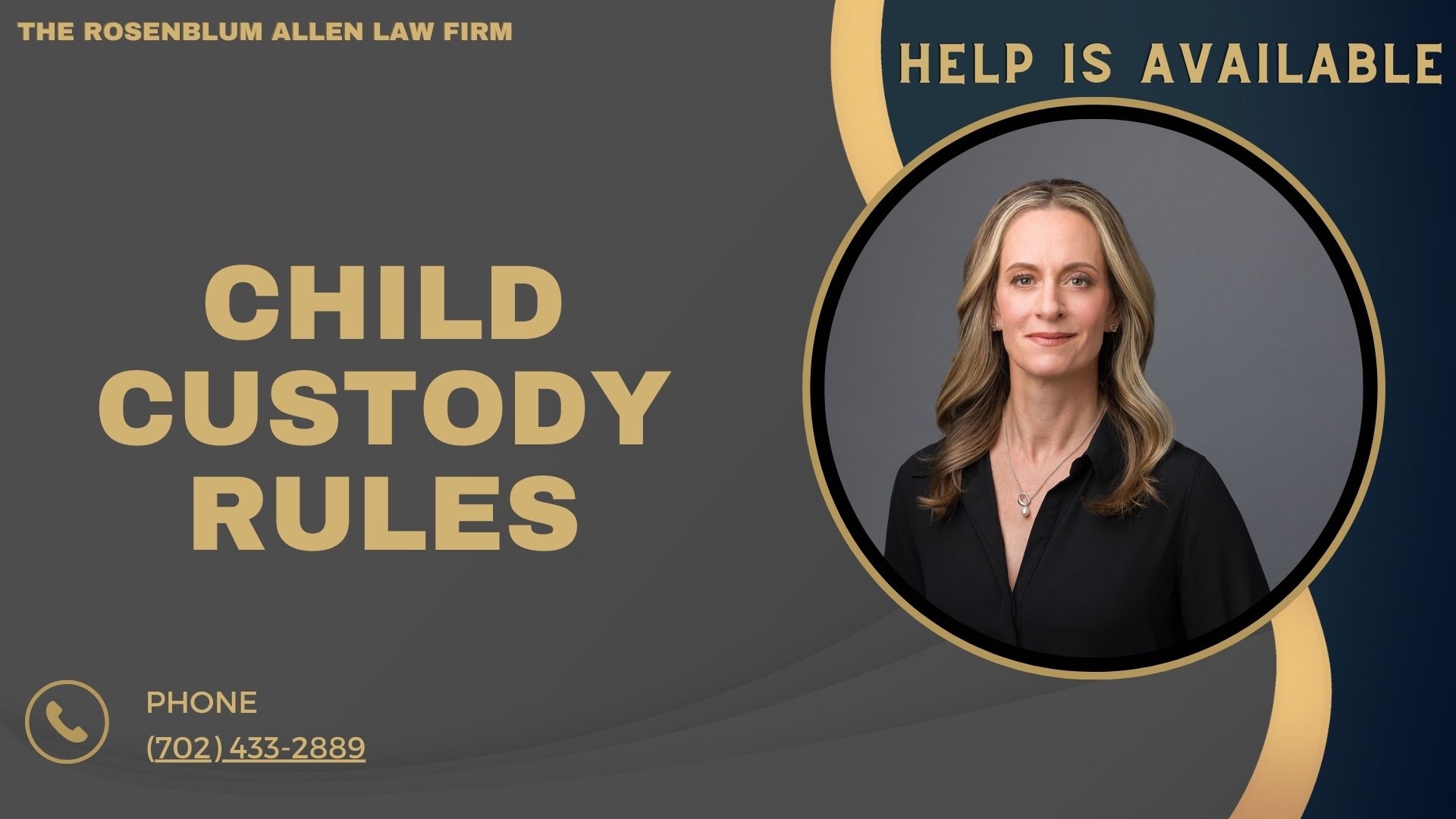Types of Child Custody
When it comes to child custody, there isn’t a one-size-fits-all solution. The court considers various factors to determine the most suitable arrangement for each family. Let’s break down the different types of custody you might encounter.Legal Custody
Legal custody refers to a parent’s right to make important decisions about their child’s upbringing. These decisions often include:- Education choices
- Religious upbringing
- Medical care
- Extracurricular activities
Physical Custody
Physical custody determines where the child primarily lives. This arrangement can take several forms:- Residential Custody: The child lives primarily with one parent.
- Visitation Rights: The non-custodial parent has scheduled time with the child.
- Parenting Time Schedules: A detailed plan outlining when the child spends time with each parent.
Joint Custody
Joint custody is an arrangement where both parents share responsibilities for their child. This can apply to both legal and physical custody. In joint custody:- Parents make decisions together about the child’s upbringing.
- The child may split time between both parents’ homes.
- Both parents have equal rights and responsibilities.
Sole Custody
In some cases, the court may award sole custody to one parent. This means:- One parent has full legal and/or physical custody.
- The other parent may have limited or no custody rights.
- Visitation rights may still be granted to the non-custodial parent.
Split Custody
Split custody is a less common arrangement where:- Each parent has full custody of one or more of their children.
- Siblings are separated, with different children living with each parent.

Determining Child Custody
Deciding who gets custody of a child is not just about what the parents want. The court is responsible for ensuring the child’s well-being, which is the top priority. Let’s dive into how these critical decisions are made.Best Interests of the Child Standard
You’ve probably heard this phrase before, but what does it mean? Simply put, courts use the golden rule to make custody decisions. They’re not just looking at who can provide the most excellent house or toys. Instead, they’re considering a range of factors contributing to a child’s overall well-being.Factors Considered by Courts
Courts look at various aspects of the child’s life and the parents’ situations. Here’s a quick rundown of what they might consider:- The child’s age and gender
- Each parent’s physical and mental health
- The child’s relationship with each parent
- Each parent’s ability to provide for the child’s needs
- The child’s routine and need for stability
- Any history of domestic violence or substance abuse
- Each parent’s willingness to support the child’s relationship with the other parent
Child’s Preference
You might be wondering, “Does my child get a say in this?” The answer is that it depends. As children grow older, their opinions often carry more weight. However, it’s not as simple as asking a child to choose between parents. Courts consider:- The child’s age and maturity level
- Whether the child can express a reasonable preference
- If the child’s preference seems genuine or influenced by a parent
Parental Fitness
When discussing parental fitness, we’re not discussing how often you hit the gym. It’s about your ability to care for your child. Courts look at things like:- Your physical and mental health
- Your ability to provide a stable home environment
- Your involvement in the child’s life
- Any history of abuse or neglect
Custody Evaluations
Sometimes, the court needs extra help to make these big decisions. That’s where custody evaluations come in. Think of it as a deep dive into your family’s situation.Home Studies
A home study is precisely what it sounds like – a professional comes to check where the child lives. They’re looking at things like:- Safety of the home
- Sleeping arrangements for the child
- Overall cleanliness and organization
- Family dynamics in the home

Psychological Assessments
This might sound intimidating, but it’s just a way for professionals to better understand everyone’s mental and emotional state. These assessments might include:- Interviews with parents and children
- Personality tests
- Observations of parent-child interactions
Guardian ad Litem
Sometimes, the court appoints a guardian ad litem. This person acts as the child’s advocate throughout the custody process. They:- Interview the child, parents, and other relevant people
- Observe parent-child interactions
- Review school and medical records
- Make recommendations to the court based on the child’s best interests
Custody Agreements and Orders
Now that we’ve covered how custody decisions are made, let’s discuss implementing those decisions. This is where custody agreements and orders come into play. Think of them as the roadmap for your co-parenting journey.Parenting Plans
A parenting plan is like a playbook for your family. It’s a detailed document that outlines how you and your co-parent will raise your child. Let’s break it down:Decision-Making Responsibilities
This part of the plan outlines who makes what decisions. For example:- Education: Joint decision
- Medical: Parent A consults Parent B
- Extracurricular activities: Parent B decides to inform Parent A
Dispute Resolution Mechanisms
Let’s face it: disagreements happen. Your parenting plan should include a process for resolving conflicts. This might involve:- Attempt to resolve between parents
- Seek help from a mediator
- Return to court as a last resort
Modifying Custody Orders
Life changes, and sometimes your custody arrangement needs to change too. But you can’t just decide to switch things up on your own. There’s a process to follow.Substantial Change in Circumstances
To modify a custody order, you must show a “substantial change in circumstances.” This could be:- A parent’s relocation
- Changes in the child’s needs
- Significant changes in a parent’s work schedule
- Health issues of a parent or child
Relocation Cases
Moving can be a big deal when it comes to custody. If you’re planning to move with your child or your co-parent is moving, you may need to go back to court. The court will consider:- The reason for the move
- How it will affect the child’s relationship with the other parent
- The child’s ties to their current community
- The potential benefits of the move for the child
Special Custody Considerations
Life isn’t always straightforward, and neither are custody situations. Let’s explore some exceptional circumstances that might affect your custody case.Unmarried Parents
You might face some unique challenges if you’re not married to your child’s other parent. But don’t worry, you still have rights!Paternity Establishment
For fathers, the first step is often establishing paternity. This is crucial because:- It gives you legal rights to your child
- It allows you to seek custody or visitation
- It enables you to be involved in important decisions
- Voluntary acknowledgment (both parents agree)
- DNA testing
- Court order
Rights of Non-Biological Parents
What if you’re not biologically related to the child, but you’ve been a parent in every other way? This might apply to:- Stepparents
- Same-sex partners who didn’t legally adopt
- Long-term partners who helped raise the child
Grandparents’ Rights
Grandparents, you’re not forgotten in the custody conversation! Your rights can vary widely depending on your state, but generally:- You may have the right to seek visitation
- In some cases, you might even seek custody
- A pre-existing close relationship with the grandchild
- Concerns about the child’s well-being with the parents
- The death of one or both parents

Third-Party Custody
Sometimes, neither parent can care for the child. In these cases, a third party might step in. This could be:- Grandparents
- Other relatives
- Close family friends
- The parents are unfit or unable to care for the child
- You have a significant relationship with the child
- Living with you is in the child’s best interests
Enforcing Custody Orders
So, you’ve got your custody order. Great! But what if your co-parent isn’t following it? Let’s talk about enforcement.Contempt of Court
If your co-parent consistently violates the custody order, they could be held in contempt of court. This is serious business and can result in:- Fines
- Mandatory parenting classes
- In extreme cases, jail time
- Document the violations
- File a motion with the court
- Attend a hearing to present your case
Police Intervention
In some situations, you might need immediate help. Police can intervene if:- Your co-parent refuses to return the child after their parenting time
- There’s a concern for the child’s safety
- Your co-parent is attempting to take the child out of state against the custody order
Interstate Custody Disputes
What if your co-parent moves to another state with your child? This is where things get complicated. The Uniform Child Custody Jurisdiction and Enforcement Act (UCCJEA) comes into play. It helps determine:- Which state has jurisdiction
- How to enforce custody orders across state lines
Child Support in Custody Cases
Let’s talk money. Child support often goes hand-in-hand with custody decisions. After all, raising a child isn’t just about time—it’s also about financial responsibility.Shared Custody Adjustments
“But wait,” you might be thinking, “what if we have shared custody?” Good question! Many states adjust child support calculations for shared custody arrangements. Here’s how it might work:- Calculate the basic support amount
- Determine each parent’s percentage of custody time
- Adjust the support amount based on custody time
- Calculate what each parent would owe if the other had full custody
- Subtract the lower amount from the higher amount
- The parent with the higher income pays the difference

Legal Representation in Custody Cases
Navigating custody cases can feel like finding your way through a maze. Sometimes, you need a guide. That’s where legal representation comes in.Hiring a Custody Lawyer
Should you hire a lawyer? It depends on your situation. Consider getting legal help if:- Your case is complex (interstate issues, special needs children, etc.)
- You and your co-parent can’t agree on significant issues
- There are concerns about abuse or neglect
- You’re not confident navigating the legal system on your own
- Seek recommendations from friends or family
- Look for attorneys who specialize in family law
- Check their experience with cases similar to yours
- Don’t be afraid to interview multiple lawyers before choosing
Mediation and Alternative Dispute Resolution
Not every custody disagreement needs to end up in court. Many families find success with mediation or other forms of alternative dispute resolution. Mediation involves:- A neutral third party (the mediator)
- Both parents
- Open discussion of issues
- Working together to find solutions
- It’s often faster than going to court
- It can be less expensive
- It gives you more control over the outcome
- It can improve communication with your co-parent

Breaking It All Down For You
Whew! We’ve covered a lot of ground, haven’t we? Navigating the world of child custody can feel like trying to solve a Rubik’s cube blindfolded. But remember, you’re not alone in this journey.
Let’s recap the key points we’ve discussed:
- There are various types of custody arrangements, from joint to sole custody.
- Courts always prioritize the best interests of the child.
- Custody agreements can be modified as circumstances change.
- Special considerations exist for unmarried parents, grandparents, and third parties.
- Enforcing custody orders is possible, but it’s always best to try cooperation first.
- Child support often goes hand-in-hand with custody decisions.
- Legal representation can be invaluable, but alternatives like mediation should not be overlooked.
Here’s the most important thing to remember: at the heart of all these rules and regulations is a child—your child. They count on you to create a stable, loving environment, even when things get tough.
It’s okay to feel overwhelmed sometimes. Custody battles can be emotionally draining. Don’t hesitate to seek support from a lawyer, counselor, or trusted friend.
As you move forward, try to keep these three golden rules in mind:
- Always put your child’s needs first.
- Be willing to communicate and compromise with your co-parent.
- Don’t be afraid to ask for help when you need it.
Remember, the goal isn’t to “win” against your ex-partner. It’s to create the best possible situation for your child to thrive. With patience, understanding, and knowledge from this guide, you’re well-equipped to navigate the choppy waters of child custody.
You’ve got this, parent. Your child is lucky to have you fighting for their best interests. Keep your chin up, take it one day at a time, and never forget that your love for your child is your most vital tool.

Frequently Asked Questions
Can grandparents or other relatives get custody of a child?
In some cases, grandparents or other relatives may be granted custody if it’s in the child’s best interest, especially if both parents are deemed unfit or unable to care for the child. This is often called “third-party custody.
How does relocation affect custody arrangements?
If a custodial parent wants to move a significant distance away, they typically need court approval. The court will consider factors like the reason for the move, its impact on the child’s relationship with the non-custodial parent, and whether it’s in the child’s best interest.
What happens if a parent refuses to follow the custody order?
Violating a custody order can result in serious consequences, including being held in contempt of court, fines, or even jail time. The court may also modify the custody arrangement if violations are frequent or severe.
Can custody arrangements be changed if a parent remarries?
Remarriage alone usually isn’t grounds for modifying custody. However, if the new marriage significantly changes the child’s living situation (positively or negatively), it could be considered in a modification request.
How does a parent's mental health affect custody decisions?
Courts consider each parent’s mental health when determining custody. A parent with a mental health condition may still get custody if they can demonstrate that their condition is managed and doesn’t negatively impact their ability to care for the child.
What role do children's preferences play in custody decisions?
The weight given to a child’s preference varies by state and the child’s age. Generally, older children’s preferences are given more consideration, but they’re not the sole determining factor.
How does homeschooling affect custody arrangements?
If one parent wants to homeschool, it can complicate custody arrangements. Courts will consider factors like the quality of the homeschooling program, the child’s social needs, and how it affects the non-custodial parent’s time with the child.
Can a parent lose custody for allowing the child to see a restricted person?
Yes, if there’s a court order prohibiting contact with a specific person (like an abusive ex-partner), violating this order could result in a loss or modification of custody rights.
How do courts handle custody in cases involving same-sex parents?
Most states now treat same-sex couples the same as heterosexual couples in custody cases. The focus remains on the child’s best interests, regardless of the parents’ genders.
What happens to custody arrangements if one parent is deployed in the military?
Special laws often apply to military families. Typically, the deployed parent’s custody rights are protected, and temporary arrangements are made for the duration of the deployment.
Why You Still Have Not Hired a Child Custody Lawyer
We’re ready to fight for the rights of your family if you hire us. We’re waiting to jump into action on the behalf of your family.

Additional Resources for You
For those navigating the complexities of family law, Molly Rosenblum Allen, Esq, our lead attorney at The Rosenblum Allen Law Firm, has curated a suite of resources to support you during challenging times. Here’s a list of valuable resources and articles to guide you:
Las Vegas Custody Attorney: Find comprehensive support and legal advice on child custody matters in Las Vegas. Learn more.
Fathers Rights: Understand your rights as a father and how to navigate the legal landscape to maintain a meaningful relationship with your children. Explore your rights.
Supervised Visitation: Discover the ins and outs of supervised visitation and how to manage this sensitive area of child custody.
Changing Custody Agreement: Learn how to approach modifying a custody agreement in Nevada, ensuring the best interests of your child are always the priority. Get the facts.
Grandparents Rights Nevada: Uncover the legal rights of grandparents in Nevada and how they can play a role in their grandchildren’s lives. Understand grandparents’ rights.
Long Distance Co-Parenting: Navigate the challenges of co-parenting across distances with practical tips and legal advice. Learn how to manage long-distance co-parenting.
How a Mother Can Lose a Custody Battle: Gain insight into the pitfalls that may affect a mother’s custody rights and how to avoid them. Read more.
Custody Battle Tips for Nevadans: Equip yourself with strategies to handle a custody battle effectively within the state of Nevada. Find tips here.
What Not To Say In Child Custody Mediation: Avoid common mistakes in mediation by understanding what not to say during the process. Educate yourself.
How Much is a Custody Lawyer: Get clarity on the costs associated with hiring a custody lawyer in Las Vegas. Learn about the costs.
Types of Custody: Understand the different types of custody to determine the best arrangement for your family. Discover the types of custody.
At What Age Can a Child Decide to Stop Visitation: Learn at what age a child can legally decide to stop visitation in Nevada. Find out more.
We encourage you to utilize these resources to empower yourself with knowledge and prepare for the journey ahead. The Rosenblum Allen Law Firm is here to help you every step of the way.

Offsite Resources You May Find Helpful
TurboCourt Custody Calculator: Custody time calculator for Nevada parents.
FindLaw: FindLaw’s outline of Nevada child custody laws and factors.

A Special Message from Our Lead Attorney, Molly Rosenblum Allen, Esq

Dear Reader,
Thank you for taking the time to learn about child custody rules. At The Rosenblum Allen Law Firm, we understand these changes can feel overwhelming. When you’re ready to take the next step in modifying your custody arrangement, call me, Molly, and my experienced team at (702) 433-2889. We’ll help you navigate this process with confidence and care.
Best regards,
Molly






